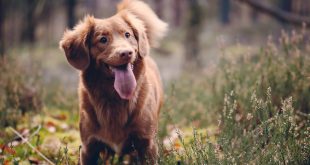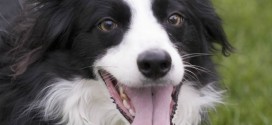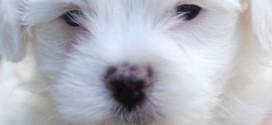Everyone loves to spoil their pets and some of the time we can’t help sharing what we are munching on with our furry friends. But there are some foods that we love to eat that are harmful to our friends. See the infographic designed by Victoria Cao and read through what is not and what is okay to feed your pets. We were surprised to see certain treats on the not okay list, for example carrots for rabbits and cheese for rats – were there any that surprised you? Let us know in the comments section below.
Dogs:
- Avocado: can be toxic to dogs in large amounts as it contains persin, something which is found in the fruit, leaves, seeds and bark.
- Grapes & raisins: can cause kidney failure in dogs and its unclear exactly why. Even a small amount could make your dog ill.
- Salty foods: sodium ion poisoning can occur if your dog has too much salty foods, so beware when sharing things like chips and pretzels with your pup.
- Peaches & plums: the pits in these fruits contain cyanide which is poisonous to both animals and humans, although we know the pits are inedible dogs don’t!
- Sugary foods: too much sugar can lead to obesity and dental problems and the onset of diabetes.
- Other foods not to feed your dogs: macadamia nuts, alcohol, chocolate and bread/yeast dough.
- Safe treats for dogs: cooked white pasta & rice, vegetables like carrot sticks, green beans and cucumber slices, and sliced fresh fruits like apples, bananas and watermelon but make sure to remove the seeds first!
Cats:
- Caffeine: Cats are more sensitive to to the effects of caffeine than people, any product containing caffeine may be toxic to cats. The caffeine excites the nervous system and will cause shaking and vomiting or diarrhea.
- Raw fish: salmon, trout, shad, and sturgeon contain parasites which could cause “fish disease” – if left untreated it could be fatal within two weeks.
- Lilies: Members of the Lilium and hermerocallis genera are extremely poisonous to cats, just 1-2 leaves or even the pollen can be fatal to cats causing kidney failure in as little as three days. These lilies include Easter lilies, day lilies, tiger lilies and Starganzer lilies.
- Onions, Garlic, Chives and Leeks: Small amounts regularly or a large amount ingested at once can destroy a cat’s red blood cells, causing anemia.
- Raw Eggs: Eggs are rich in protein and cooked eggs are great for both us humans and cats, but E. Coli and salmonella are a risk of raw eggs, so avoid feeding them to your feline.
- Other foods not to feed your cats: chocolate, alcohol, grapes, raisins, and bread/yeast dough.
- Safe treats for cats: Cooked meats like chicken, eggs or fish, small amounts of cheese, veggies such as broccoli.
Rats:
- Citrus fruits: Fruits like limes, grapefruits, and oranges are too acidic and can cause kidney damage, especially with male rats.
- Cheese: cheese is high in fat, and therefore should only be fed as a special treat. Blue cheese should be avoided altogether as the mold can be toxic.
- Other foods not to feed your rat: food that is made for other animals such as hamsters or guinea pigs which will not have the right nutrition.
- Safe treats for rats: sunflower seeds and peanuts make good occasional treats.
Rabbits:
- Lettuce: certain types of lettuce such as iceberg should not be fed to rabbits as they contain laudanum which can be harmful.
- Carrots: despite popular belief carrots should not be used as a main source of food for rabbits as they do not naturally eat root veg. Carrots should only be fed as an occasional treat as they are high in sugar.
- Grass clippings: avoid feeding law clippings to your rabbit as they ferment quickly and could cause digestive trouble. Instead, the majority of your rabbit’s diet should consist of quality hay.
- Other foods not to feed your rabbit: Muesli mix
- Safe treats for your rabbit: a mix of green vegetables such as broccoli, celery, peas, and zucchini are good for daily feeding.
 Pet Pics Daily A community for pet lovers!
Pet Pics Daily A community for pet lovers!




